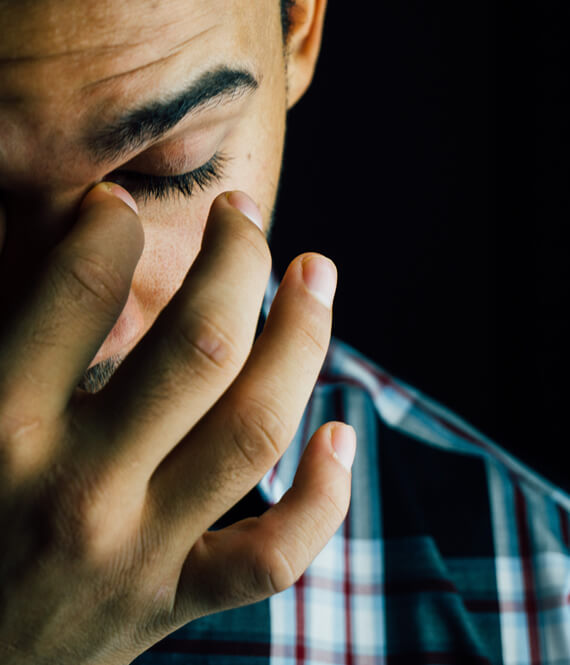
Finding Gratitude After Surviving Trauma
We recommend helpful products in our articles. Read our full disclosure here. The content on this website is not intended to be a substitute for professional advice, diagnosis, or treatment.
It can be difficult for those who have experienced trauma to “think positively.” The aftermath of trauma leaves many on edge in what feels like a constant state of worrying something bad will happen again.
Trauma can also leave us with triggers such as smells, sounds, or feelings that bring us back to the trauma we experienced.
Although it can be difficult to find at times, gratitude can be incredibly helpful to the process of healing after experiencing a traumatic event.
Trauma and Withdrawal
For survivors of trauma, a constant fear that danger is following them can lead to withdrawal.
It is important to understand withdrawal and its effects on survivors’ families, friends, and caregivers.
Withdrawing helps survivors feel that they are reducing vulnerability and preventing further injury; it is a lifesaving natural response that our bodies go through.
While withdrawal helps survivors feel safe and recuperate from their shocking experiences, it can also easily leave them in a constant state of misery.
The standard cycle of emotions that initially follow a traumatic event includes shock, fear, anger, denial, and rumination.
After they have passed these feelings, more complex emotions about the event emerge.
These are often feelings of guilt, shame, and injury to their morality.
Withdrawal is the most challenging stage for many trauma survivors to move past.
This instinctual response may be helpful for survival, but it is not helpful for a thriving lifestyle.
The fear response is meant to be temporary, but for those who repeatedly experience trauma or ongoing stress, the response becomes less temporary within the nervous system.
This means that survivors are in a constant state of alertness, and non-threatening situations can easily trigger a fear response.
Finding gratitude can be a great way for survivors to pull themselves out of this cycle of misery and eventually allow them to live happier lives without constant fear.
A phenomenon in psychology called post-traumatic growth teaches that after trauma, one can bounce back and surpass what was normal to them.
Not only can you move past the withdrawal and misery trauma leaves you with, but you can even come to feel the happiest you’ve ever been.
Ways to Find a Little Gratitude
Gratitude involves feeling thankful and appreciative of the things that you do have in your life.
It is a positive emotion with mental health benefits and physical benefits.
However, it can be difficult to know precisely when you are expressing gratitude effectively because it can happen in several different ways.
Finding gratitude can mean all kinds of things.
It can be taking note of how grateful you are for your family and friends, your favorite book, or the last meal you had.
As time goes on, you can begin to find things about your trauma for which you are grateful.
Maybe you can focus on your friend’s support after your experience and find gratitude that there are people in your life who could be there with you.
What you find gratitude in is important, but knowing how you express it is important too and can be different from person to person.
Gratitude could be stopping for a few moments during your day and thinking about all of the things you are thankful to have.
It can also be acknowledging something within your day, for example, the beauty of something you encounter.
Your gratitude can also involve another person, perhaps thanking an individual in your life for their past or present actions.
Perhaps you will show your gratitude by paying it forward and doing something kind for a person to show how grateful you are.
Gratitude can be large or small; try to pay attention to the small details and little things in your life that bring you joy, not just the more significant aspects that call your attention.
You could also focus your prayer and meditation on thankfulness to express gratitude.
Whatever method works for you is a valid form of expressing gratitude, and it may not always be the first one you try.
As mentioned, gratitude is an essential tool for overcoming trauma but can also improve other aspects of your physical health.
Researchers have found that feeling grateful can improve your sleep, immunity, self-esteem, relationships, and levels of optimism.
It can also decrease stress, blood pressure, anxiety, and depression.
Taking time out of your day or week to feel grateful is not a simple cure-all to trauma, and it requires some effort to achieve.
However, it has been incredibly beneficial for many and could be your answer to stepping closer to the daily happiness and contentment you deserve in life.
Your trauma should not hold you back from enjoying all the good things you have.
Roni Davis
Writer, blogger, and legal assistant operating out of the greater Philadelphia area. She writes for Mosser Legal, a criminal appeals lawyer in Philadelphia.













Leave a Comment